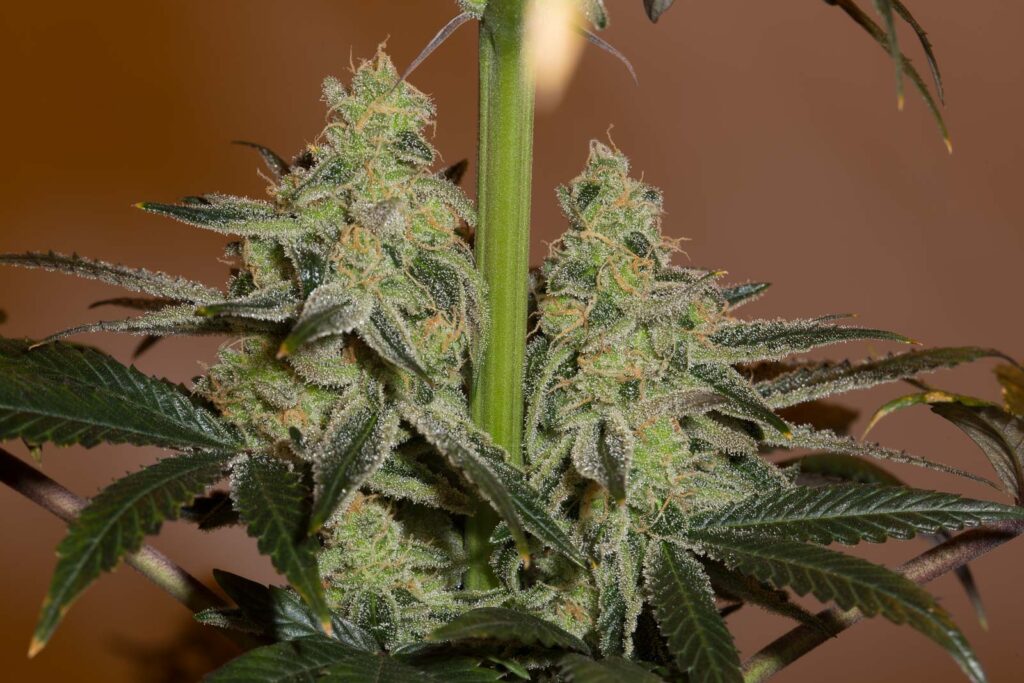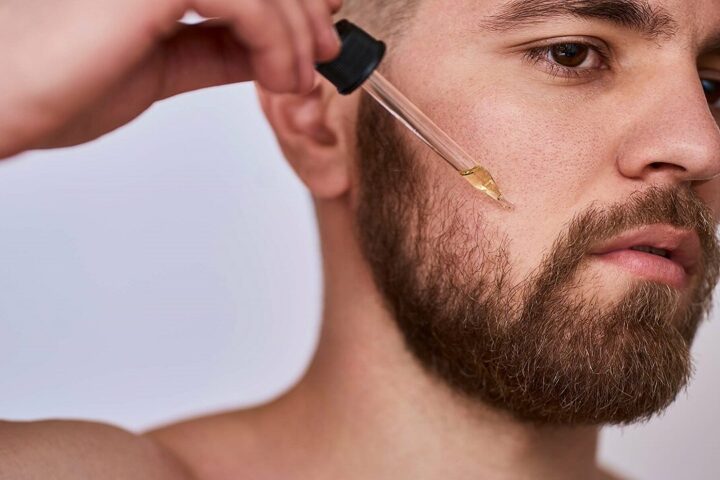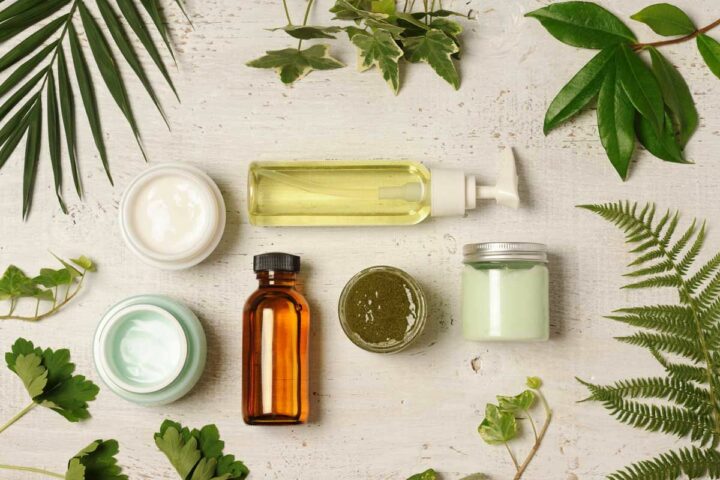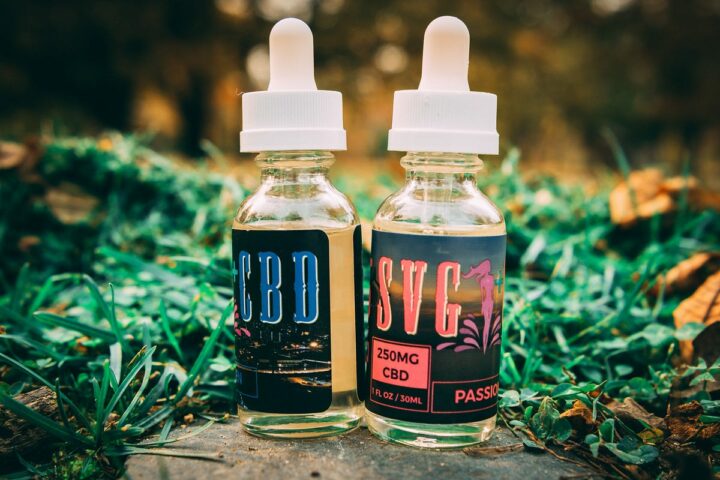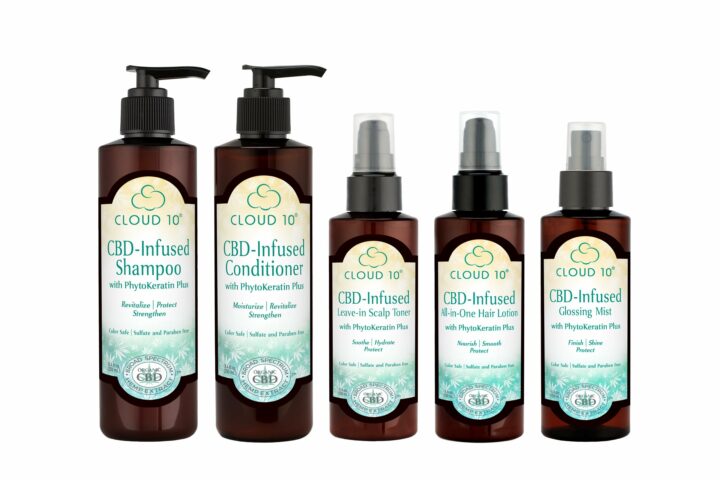Terpenes
What is Terpenes
Terpenes are a group of organic compounds found in plants, including cannabis, that are responsible for the plant’s unique aroma and flavor. These compounds are synthesized in the same glandular trichomes as cannabinoids and have been found to interact with them to produce various effects.
There are over 20,000 known terpenes, and each plant species has its own unique blend. Some of the most common terpenes found in cannabis include:
1. Limonene
Limonene is a citrusy terpene found in the rinds of citrus fruits and other plants, including cannabis. It has been found to have anti-inflammatory and anti-cancer properties and is known for its uplifting and energizing effects.
2. Pinene
Pinene is a terpene found in pine trees, conifers, and some cannabis strains. It has a piney aroma and has been found to have anti-inflammatory and anti-cancer properties. It is also known for its ability to improve mental clarity and focus.
3. Myrcene
Myrcene is a terpene found in many plants, including hops, mangoes, and some cannabis strains. It has a musky aroma and has been found to have anti-inflammatory and analgesic properties. It is also known for its sedative effects and may be responsible for the “couch-lock” feeling often associated with indica strains.
4. Caryophyllene
Caryophyllene is a terpene found in black pepper, cloves, and some cannabis strains. It has a spicy aroma and has been found to have anti-inflammatory and analgesic properties. It is also unique in that it interacts directly with the body’s endocannabinoid system, making it the only terpene known to act as a cannabinoid.
5. Linalool
Linalool is a terpene found in lavender and many other plants, including some cannabis strains. It has a floral aroma and has been found to have anti-inflammatory, analgesic, and anxiolytic (anti-anxiety) properties. It is also known for its sedative effects.
Conclusion
Terpenes are a group of organic compounds found in plants, including cannabis, that are responsible for the plant’s unique aroma and flavor. They have been found to have various medicinal properties and may interact with cannabinoids to produce a range of effects. By understanding the different terpenes found in cannabis, users can choose strains that best suit their needs and preferences.
How to Use Terpenes
Terpenes are a group of organic compounds found in plants, including cannabis, that are responsible for the plant’s unique aroma and flavor. While terpenes can be consumed through the consumption of cannabis, there are other ways to use them to enhance your wellness routine.
1. Aromatherapy
One of the most common ways to use terpenes is through aromatherapy. Essential oils derived from plants contain high levels of terpenes and can be used in a diffuser or added to a bath or massage oil. Inhaling the aroma of terpenes has been found to have various therapeutic benefits, including reducing anxiety, improving mood, and promoting relaxation.
2. Topical Application
Some terpenes, such as linalool and limonene, have been found to have anti-inflammatory and analgesic properties and may be effective in treating skin conditions, such as acne and eczema. Terpenes can be added to carrier oils, such as coconut oil or jojoba oil, and applied topically to the skin.
3. Edibles
Terpenes can also be consumed through edibles. While terpenes are not psychoactive like cannabinoids, they can enhance the flavor and aroma of foods and drinks. Some terpenes, such as limonene, are commonly used in cooking and can be found in various recipes, including lemon bars and citrus marinades.
4. Vaping
Terpenes can also be consumed through vaping. Many vape cartridges contain terpenes extracted from cannabis or other plants to enhance the flavor and aroma of the vape oil. However, it is important to note that not all vape cartridges contain pure terpenes, and some may contain harmful additives.
Conclusion
Terpenes are a group of organic compounds found in plants, including cannabis, that are responsible for the plant’s unique aroma and flavor. They can be used in various ways, including aromatherapy, topical application, edibles, and vaping. By incorporating terpenes into your wellness routine, you can experience their therapeutic benefits and enhance your overall well-being.
What are the Benefits of Terpenes
Terpenes are a group of organic compounds found in plants, including cannabis, that are responsible for the plant’s unique aroma and flavor. In addition to their sensory qualities, terpenes have also been found to have various therapeutic benefits.
1. Anti-inflammatory Properties
Several terpenes, including beta-caryophyllene and humulene, have been found to have anti-inflammatory properties. Inflammation is linked to various health conditions, including arthritis, cardiovascular disease, and certain cancers. By reducing inflammation, terpenes may help to alleviate symptoms associated with these conditions.
2. Analgesic Properties
Some terpenes, such as myrcene and limonene, have been found to have analgesic properties. These compounds may help to alleviate pain by blocking pain signals in the brain or reducing inflammation.
3. Anti-Anxiety and Anti-Depressant Properties
Several terpenes, including linalool and limonene, have been found to have anti-anxiety and anti-depressant properties. These compounds may help to reduce symptoms of anxiety and depression by modulating neurotransmitters in the brain, such as serotonin and dopamine.
4. Anti-Microbial Properties
Certain terpenes, such as pinene and eucalyptol, have been found to have anti-microbial properties. These compounds may help to prevent the growth of harmful bacteria and fungi, making them useful for treating infections and preventing the spread of disease.
5. Neuroprotective Properties
Several terpenes, including beta-caryophyllene and pinene, have been found to have neuroprotective properties. These compounds may help to protect the brain from damage caused by oxidative stress and inflammation, making them useful for treating neurodegenerative diseases, such as Alzheimer’s and Parkinson’s.
Conclusion
Terpenes are a group of organic compounds found in plants, including cannabis, that have various therapeutic benefits. These compounds have been found to have anti-inflammatory, analgesic, anti-anxiety and anti-depressant, anti-microbial, and neuroprotective properties. By incorporating terpenes into your wellness routine, you can experience their therapeutic benefits and enhance your overall well-being.
What to Look for when shopping for Terpenes
Terpenes are becoming increasingly popular as people look to enhance their wellness routines with natural plant-based compounds. If you’re interested in purchasing terpenes, there are a few things to keep in mind to ensure you’re getting a high-quality product.
1. Purity
One of the most important things to look for when shopping for terpenes is purity. Some companies may add fillers or synthetic compounds to their terpene products, which can be harmful to your health. Look for terpenes that are extracted from natural, organic sources and do not contain any additives or fillers.
2. Extraction Method
There are several methods used to extract terpenes from plants, including steam distillation, cold-pressing, and solvent extraction. Each method has its advantages and disadvantages, but steam distillation is generally considered the safest and most effective method for extracting terpenes.
3. Strain-Specific Terpenes
If you’re interested in using terpenes for their specific therapeutic properties, look for strain-specific terpenes. Different strains of cannabis contain different terpene profiles, and certain terpenes are associated with specific effects, such as relaxation or energy. By choosing strain-specific terpenes, you can customize your experience and target specific wellness goals.
4. Third-Party Testing
To ensure that the terpenes you’re purchasing are of high quality, look for products that have been third-party tested. Third-party testing involves sending a sample of the product to an independent laboratory for analysis. The lab will test for purity, potency, and the presence of any contaminants. Look for products that provide access to their third-party testing results.
5. Reputation of the Manufacturer
When shopping for terpenes, it’s important to consider the reputation of the manufacturer. Look for companies that have a proven track record of producing high-quality, safe, and effective products. Read reviews from other customers to get a sense of the company’s reputation.
Conclusion
Terpenes are natural plant-based compounds that can enhance your wellness routine. When shopping for terpenes, look for products that are pure, extracted using safe methods, strain-specific, third-party tested, and produced by reputable manufacturers. By choosing high-quality terpenes, you can experience their therapeutic benefits and enhance your overall well-being.
FAQs-Terpenes
What do terpenes do for your high?
Terpenes are aromatic compounds found in various plants, including cannabis. They are responsible for the unique scents and flavors associated with different cannabis strains. Terpenes also play a role in enhancing or modifying the effects of cannabinoids like THC and CBD, potentially contributing to the overall cannabis “high.” Terpenes can interact with receptors in the brain and influence neurotransmitters, affecting mood, relaxation, and other aspects of the cannabis experience. Some terpenes, such as limonene, may promote a more uplifting and energizing effect, while others, like myrcene, may have more sedative properties. The presence and combination of different terpenes in a cannabis strain can contribute to a distinct and individualized high, with each terpene potentially offering unique effects and benefits. However, the specific effects of terpenes can vary among individuals, and further research is needed to fully understand their impact on the cannabis experience.
What is terpene used for?
Terpenes have various uses across different industries and applications. In nature, terpenes play a crucial role in plant defense mechanisms, attracting pollinators, and warding off pests. In the field of aromatherapy, terpenes are used for their aromatic properties to promote relaxation, enhance mood, and provide therapeutic benefits. Terpenes are also widely used in the fragrance and flavor industries to add scents and tastes to perfumes, cosmetics, food products, and beverages. In the cannabis industry, terpenes are highly valued for their potential effects on the overall cannabis experience. Different terpenes are believed to contribute to the distinct flavors, aromas, and potential therapeutic properties of cannabis strains. Moreover, terpenes are increasingly being studied for their potential health benefits, including anti-inflammatory, antimicrobial, and antioxidant properties. As research continues, the potential applications and benefits of terpenes are expanding, making them an intriguing area of scientific exploration.
Are terpenes good or bad for you?
Terpenes, in their natural form and at typical exposure levels, are generally considered safe for human consumption and use. They are commonly found in a wide range of plants and foods, and many have been used for centuries in traditional medicine and aromatherapy without reported harmful effects. However, it’s important to note that some terpenes can be irritants or sensitizers in high concentrations or when used in certain ways. For example, essential oils containing high concentrations of terpenes should be used with caution, as they can cause skin irritation or allergic reactions in some individuals. Additionally, when it comes to terpenes derived from cannabis, their effects and safety may vary depending on the specific terpene and individual factors. Further research is needed to fully understand the potential benefits, risks, and optimal uses of different terpenes. It’s always advisable to use terpenes and terpene-rich products in moderation, follow product instructions, and consult with healthcare professionals if you have specific concerns or pre-existing health conditions.
Is terpene CBD?
No, terpenes are not CBD (cannabidiol). Terpenes are a class of aromatic compounds found in various plants, including cannabis. They are responsible for the distinct scents and flavors associated with different cannabis strains. CBD, on the other hand, is a cannabinoid compound found in cannabis plants. While terpenes and CBD can both be present in cannabis products, they are different compounds with distinct properties. Terpenes contribute to the overall profile and experience of cannabis strains, influencing aroma, taste, and potential effects, while CBD is one of the cannabinoids known for its potential therapeutic benefits. It’s worth noting that terpenes and CBD can work synergistically in what is often referred to as the “entourage effect,” where the combined presence of multiple compounds in cannabis may enhance their individual effects.
Do terpenes show up on drug test?
Terpenes themselves do not show up on drug tests. Drug tests typically look for specific compounds, such as THC (tetrahydrocannabinol), the psychoactive component of cannabis, or its metabolites. Terpenes are aromatic compounds found in various plants, including cannabis, but they are not the primary target of drug tests. However, it’s important to note that some CBD products, especially full-spectrum CBD products that contain trace amounts of THC, may result in a positive drug test for THC. This is because even small amounts of THC can accumulate in the body over time. Therefore, if you are concerned about drug testing, it is recommended to choose CBD products that are labeled as THC-free or made from CBD isolate to minimize the risk of testing positive for THC.
Is vaping CBD with terpenes safe?
Vaping CBD with terpenes can be safe when using reputable and high-quality products, but it’s important to exercise caution and make informed choices. Terpenes are aromatic compounds found in various plants, including cannabis, and they contribute to the flavor, aroma, and potential effects of CBD products. When combined with CBD, terpenes can enhance the overall experience and potentially offer additional therapeutic benefits. However, it’s crucial to ensure that the CBD vape products with terpenes are sourced from reputable manufacturers that prioritize product quality and safety. Look for products that provide third-party lab testing to verify the contents and absence of harmful additives or contaminants. Additionally, it’s important to use vaping devices and techniques properly and to be aware of the potential risks associated with vaping in general, such as lung irritation or allergic reactions. If you have any concerns or pre-existing health conditions, it is advisable to consult with a healthcare professional before vaping CBD with terpenes.
Is it OK to inhale CBD vape?
Inhaling CBD through vaping is generally considered safe for most people when done responsibly and with high-quality CBD vape products. Vaping allows for quick absorption of CBD into the bloodstream through the lungs, resulting in faster onset of effects compared to other methods. However, it’s important to exercise caution and make informed choices when selecting CBD vape products. Choose reputable brands that provide third-party lab testing to ensure product quality and purity. It’s also advisable to start with a low dosage and gradually increase as needed, as individual tolerance and sensitivity to CBD may vary. Additionally, it’s crucial to be aware of the potential risks associated with vaping in general, such as lung irritation or allergic reactions, and to follow proper vaping techniques and device maintenance. If you have any pre-existing health conditions or concerns, it is advisable to consult with a healthcare professional before using CBD vape products.
Is it OK to inhale CBD vape?
Inhaling CBD vape is generally considered safe when using reputable and high-quality CBD vape products. Vaping allows for the rapid absorption of CBD into the bloodstream through the lungs, providing quick and efficient delivery of the compound. However, it’s important to note that the long-term effects of vaping CBD are not yet fully understood, and there may be potential risks associated with vaping in general. It’s crucial to choose reliable brands that prioritize product quality and purity, ensuring that the vape liquid does not contain harmful additives or contaminants. It’s also recommended to start with a low dosage and gradually increase as needed, as individual tolerance to CBD may vary. If you have any pre-existing health conditions or concerns, it is advisable to consult with a healthcare professional before using CBD vape products. Additionally, it’s important to use vaping devices and techniques responsibly and to be aware of the potential risks associated with vaping, such as lung irritation or allergic reactions.
Are terpenes bad to smoke?
Terpenes themselves are not inherently bad to smoke, as they are naturally occurring compounds found in various plants, including cannabis. In fact, terpenes contribute to the aroma, flavor, and potential effects of different strains of cannabis. However, when it comes to smoking, it’s important to consider the overall context. Smoking, in general, can have negative health effects, as the combustion process produces harmful byproducts and toxins that can be detrimental to lung health. This applies to smoking any substance, including cannabis. While terpenes themselves are not harmful, the act of smoking may introduce additional risks. It’s worth exploring alternative methods of consumption, such as vaporizing or using edibles, to minimize the potential risks associated with smoking. Additionally, if you have any pre-existing health conditions or concerns, it is advisable to consult with a healthcare professional before smoking or using cannabis products.
Can you overdose on terpenes?
Terpenes are naturally occurring compounds found in various plants and are generally considered safe for consumption. They are not known to cause overdose or toxicity on their own. However, it’s important to note that concentrated forms of terpenes, such as terpene oils or extracts, can be potent and should be used in moderation. When using terpene products, it’s essential to follow the recommended dosage guidelines provided by the manufacturer. As with any substance, individual sensitivities and reactions may vary, so it’s advisable to start with a low dose and monitor your body’s response. If you experience any adverse effects or have concerns about terpene usage, it’s best to consult with a healthcare professional for personalized advice.
Do terpenes affect anxiety?
Terpenes may have the potential to affect anxiety, but individual experiences can vary. Terpenes are aromatic compounds found in plants, including cannabis, and they contribute to the aroma, flavor, and potential effects of different strains. Some terpenes, such as linalool and limonene, have been associated with potential anti-anxiety properties. However, the effects of terpenes on anxiety are not yet fully understood, and more research is needed to determine their specific mechanisms and efficacy. It’s important to note that the overall impact of terpenes on anxiety may depend on various factors, including individual biology, the specific terpenes used, and the interaction with other compounds. If you’re considering using terpenes for anxiety, it’s advisable to consult with a healthcare professional who can provide personalized guidance and help determine the best approach for your situation.
What terpenes to avoid?
There are no specific terpenes that need to be universally avoided, as terpenes are naturally occurring compounds found in various plants and have different effects and aromas. However, some individuals may have sensitivities or allergies to certain terpenes, just as they might with other natural substances. It’s essential to be aware of your own body’s response and any potential allergies or sensitivities you may have. If you experience any adverse reactions, such as skin irritation or respiratory discomfort, when using products containing specific terpenes, it’s best to discontinue use and consult with a healthcare professional for guidance. Additionally, when using cannabis products, it’s important to consider the overall composition and quality of the product, as well as any potential interactions with other compounds present, such as cannabinoids.
What terpene is bad for anxiety?
While there isn’t a specific terpene that is universally considered “bad” for anxiety, it’s important to note that individual experiences with terpenes can vary. Some individuals may find certain terpenes to be calming and helpful for anxiety, while others may have different responses. However, there are a few terpenes that have been associated with potential anti-anxiety properties. For example, linalool, found in lavender and some cannabis strains, has been suggested to have relaxing and anxiety-reducing effects. Similarly, limonene, found in citrus fruits and certain cannabis strains, has been linked to potential mood-enhancing and stress-reducing properties. It’s important to remember that the effects of terpenes on anxiety can be influenced by various factors, including individual biology and the interaction with other compounds. If you’re considering using terpenes for anxiety, it’s advisable to consult with a healthcare professional who can provide personalized guidance based on your specific needs and circumstances.
What terpenes cause a body high?
Terpenes themselves do not directly cause a body high, as they are aromatic compounds found in plants that contribute to their aroma and potential effects. The body high typically associated with cannabis consumption is primarily attributed to the presence of cannabinoids, such as THC (tetrahydrocannabinol). THC is the psychoactive compound in cannabis that can produce euphoria and a sense of relaxation or heaviness in the body. However, certain terpenes may interact with cannabinoids and potentially influence the overall experience. For example, the terpene myrcene is believed to enhance the effects of THC, potentially contributing to a more pronounced body high. Other terpenes, such as pinene or limonene, may have energizing or uplifting effects that complement the overall experience. It’s important to note that the effects of terpenes and cannabinoids can vary based on the specific strain and individual response.
Which terpene causes arousal?
There isn’t a specific terpene that is universally recognized as causing arousal, as the effects of terpenes can vary depending on the individual and other factors. However, some terpenes have been associated with potential uplifting and energizing effects, which could contribute to a sense of arousal or heightened mood. For example, the terpene limonene, commonly found in citrus fruits and certain cannabis strains, has been suggested to have mood-enhancing properties and may promote a sense of alertness and positivity. Additionally, terpenes like pinene and beta-caryophyllene have been linked to potential stimulating effects. It’s important to note that the effects of terpenes can be influenced by the specific strain, dosage, and individual response. If you’re seeking specific effects or considering using terpenes for arousal, it’s advisable to consult with a healthcare professional or knowledgeable expert for guidance based on your personal needs and preferences.
- Apple Gelato Weed Strain Information - May 2, 2024
- Sweet Tart Weed Strain Information - April 27, 2024
- Expert Guide to White Fire OG (WiFi OG) Weed Strain Information - April 20, 2024





